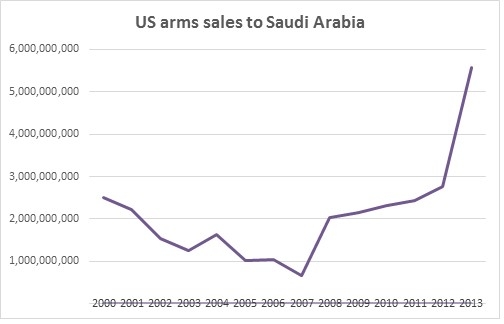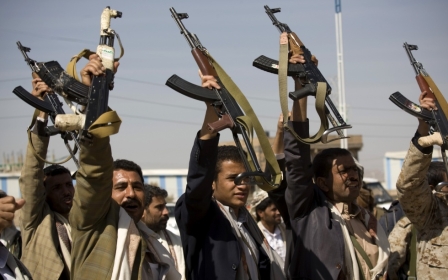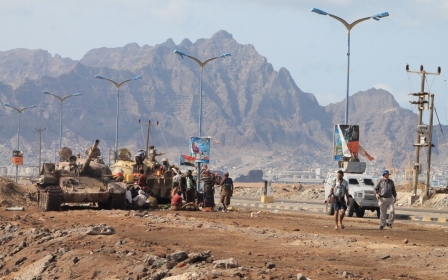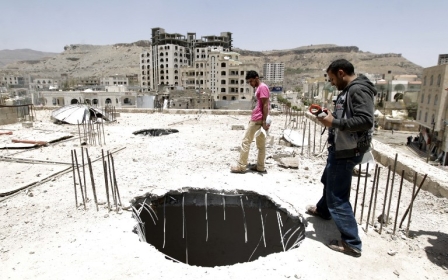Saudi-led coalition using cluster bombs in Yemen, says HRW
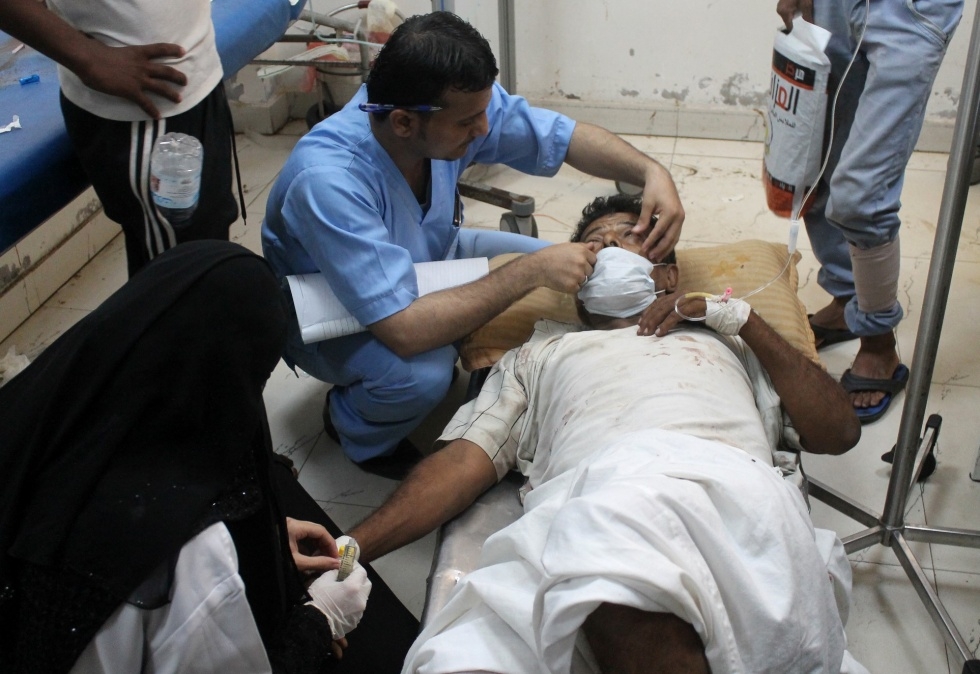
The Saudi-led coalition has been using US-supplied cluster bombs in its air campaign against Yemen’s Houthi fighters, Human Rights Watch said on Sunday, warning of the long-term dangers to civilians.
The widely banned weapons contain dozens of submunitions, which sometimes do not explode, essentially becoming landmines that can kill or maim long after the initial bomb is dropped.
HRW said in a new report on Sunday that it has gathered photographs, video and other evidence indicating that cluster munitions have been used in coalition airstrikes against the Houthi stronghold of Saada province, in Yemen's northern mountains.
Photographs published by the monitor show two large aluminium shells discovered in the al-Safraa district of Saada province on 17 April, just over three weeks into the Saudi-led bombing campaign.
The objects are identified as a BLU-108 cluster bomb, manufactured by the US weapons firm Textron, which also produces helicopters, armoured vehicles and car parts.
HRW said that analysis of satellite imagery suggested the weapons had landed on a cultivated plateau, within 600 metres of populated areas.
According to the group, evidence indicates that multiple attacks may have been carried out.
Cluster munitions are prohibited by a 2008 treaty adopted by 116 countries, but not by Saudi Arabia and its coalition partners or the United States.
"Saudi-led cluster munition airstrikes have been hitting areas near villages, putting local people in danger,” said HRW arms director Steve Goose.
"Saudi Arabia and other coalition members – and the supplier, the US - are flouting the global standard that rejects cluster munitions because of their long-term threat to civilians."
The BLU-108, which is also sold to the UAE, is banned by the Convention on Cluster Munitions.
However, Washington permits its use and export because it boasts an unexploded ordnance rate of less than one percent.
HRW called for that loophole to be closed and for deliveries of the weapons to cease.
Saudi Arabia has denied using the controversial munitions in a war that has had a high civilian death toll.
The coalition aims to destroy Houthi weapons stores and degrade their military capabilities, but with the group accused of hiding munitions in schools and residential buildings, civilians have frequently been affected.
On Friday a series of airstrikes in south-western Yemen hit a hospital and a medical camp and killed at least 58 civilians, many of them medical staff and patients, according to local officials.
Saudi Arabia recently became the world’s biggest arms importer – one of its largest suppliers is the US, which sold over $5.5bn in weapons to the Gulf country in 2013.
US arms sales to its regional ally are now at an all-time high, after jumping by more than 100 percent between 2012 and 2013. Figures for 2014 have not yet been made available.
New MEE newsletter: Jerusalem Dispatch
Sign up to get the latest insights and analysis on Israel-Palestine, alongside Turkey Unpacked and other MEE newsletters
Middle East Eye delivers independent and unrivalled coverage and analysis of the Middle East, North Africa and beyond. To learn more about republishing this content and the associated fees, please fill out this form. More about MEE can be found here.


